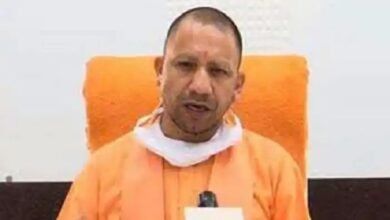[ad_1]
As a five-judge Bench of the Supreme Court Monday (December 11) upheld the abrogation of Article 370 by the Centre in 2019, Justice Sanjay Kishan Kaul, the senior-most judge on the bench, recommended setting up a Truth and Reconciliation Commission, along similar lines as in South Africa, to look into human rights violations by both state and non-state actors in J&K.
“In view of the inroads made globally and indigenous requests for truth and reconciliation commissions, I recommend the setting up of an impartial truth and conciliation commission. The commission will investigate and report on the violation of human rights by both state and non-state actors perpetrated in J&K at least since the 1980s and recommend measures for reconciliation,” Justice Kaul said in his concurring opinion, adding that this exercise must be done expeditiously and in a time-bound manner.
He was also quick to add that such commissions must refrain from becoming criminal courts and should be based on dialogue.
As part of what he termed a “sentimental epilogue” at the end of his opinion, Justice Kaul said that the valley of Kashmir carries a historical burden and has a social context that cannot be segregated in light of the evolving constitutional status of the region. “We, the people of Jammu and Kashmir, are at the heart of the debate,” Justice Kaul said, adding that Kashmiri people have carried the burden of being victims of conflict for several decades.
He explained that intervening political circumstances did not permit a redressal of the valley’s tribulations, originating in 1947, to the fullest extent. Consequently, parts of Kashmir were occupied by other countries, and insurgency was also rife, he said.
Subsequently, Kaul said that these events culminated in the migration of a part of the state population between 1989 and 1990. “It was not a voluntary migration. The situation became so aggregated that the very integrity and sovereignty of our country were endangered, and the army had to be called in,” he said, adding that armies are meant to fight battles against enemies instead of controlling law and order in the state.
Highlighting that the army’s incursion into the state brought with it its own set of ground realities, Kaul said that the men, women, and children of the state “paid a heavy price.”
Kaul also spoke of the feeling of distrust that an entire generation of youth in the Valley has grown up with, and said, “There is already an entire generation of youth that has grown up with a feeling of distrust, and it is to them that we owe the greatest of reparations.”
Concluding his portion by adding that the commission is only one of the many avenues on the road to systemic reforms, Kaul said, “It is my sincere hope that much will be achieved when Kashmir opens up its heart to embracing the past and facilitating the people who were compelled to migrate to come back with dignity.”
[ad_2]





